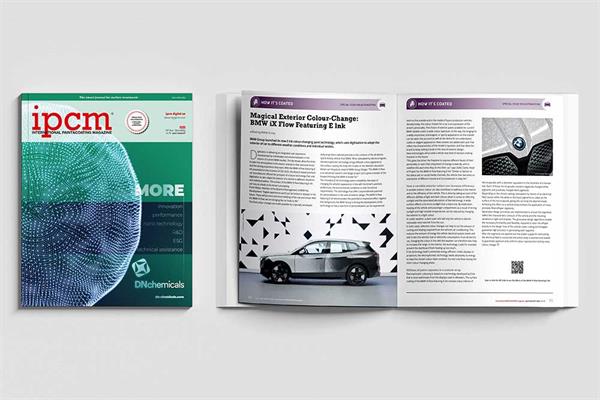
Read the latest issue of the magazine dedicated to surface treatments and organic and inorganic finishes. Special issue on Automotive and industrial cleaning technologies.
The last four years have been particularly hard for the automotive industry. First, in 2019, the “diesel crisis” sank car sales in Europe and undermined the image of some OEMs on the international markets. Then, the pandemic caused two years of little or no mobility and, above all, the complete breakdown of supply chains, which tripled the waiting time for electronic components thus making semiconductors and microchips rare commodities and ultimately further weakening the car market. Today, the war between Russia and Ukraine, speculation on energy prices, and the increasing difficulties in the procurement of components are still not allowing this strategic industrial sector to fully recover. On top of that, consumers are disoriented by technological changes and exasperated by delivery delays and price increases even in the second-hand market.
Yet, the automotive industry is still a trend-setter, the springboard for new technologies, the cradle of the most advanced customisation techniques. Cars are undeniably a dream or status symbol for many of us – and purely an instrumental asset for others. In both cases, one chooses their car in their own image.
And, nowadays, with the knowledge that the future of mobility is not only electric but also and above all digital. Internet of Things (IoT) platforms for connected cars have grown exponentially as on-demand features improve convenience, comfort, multimediality, performance, and safety of vehicles. Together, these technologies are capable of totally transforming user experience but also of expanding the boundaries of personalisation.
This is where our industry, that of surface treatments, comes into play. Any new component or device introduced on a car must receive some kind of surface treatment to make it robust and durable and give it a functional or aesthetic (or both) finish.
The digitalisation of cars has also made cleaning, surface preparation, and finishing processes more complex, requiring investment in finishing technologies that enhance, and do not hinder, the functionality of new components. Think, for example, of the radars and lidars that enable autonomous driving: the high transparency of the finishes applied on them is essential to preserve their function.
The increasing customisation of cars has also called for many technological investments. Whereas until recently customising one’s own car was a dream for a few, now a certain range of customisation options is available for any car. This has required investment in industrialising technologies for mass-produced and not just hand-crafted customisation, as used to happen (and still happens to some extent today) in the body shops of luxury and sports brands.
In this summer issue of ipcm®, which has a focus on the automotive and transportation industries, we have collected many articles illustrating innovations and investments in finishing technologies, as well as success stories of companies for which manufacturing car parts has been a turning point in their history.
Of course, it also offers many other technical and market insights and content on finishing, not to disappoint any reader. Let alone at the beach!
Happy summer.